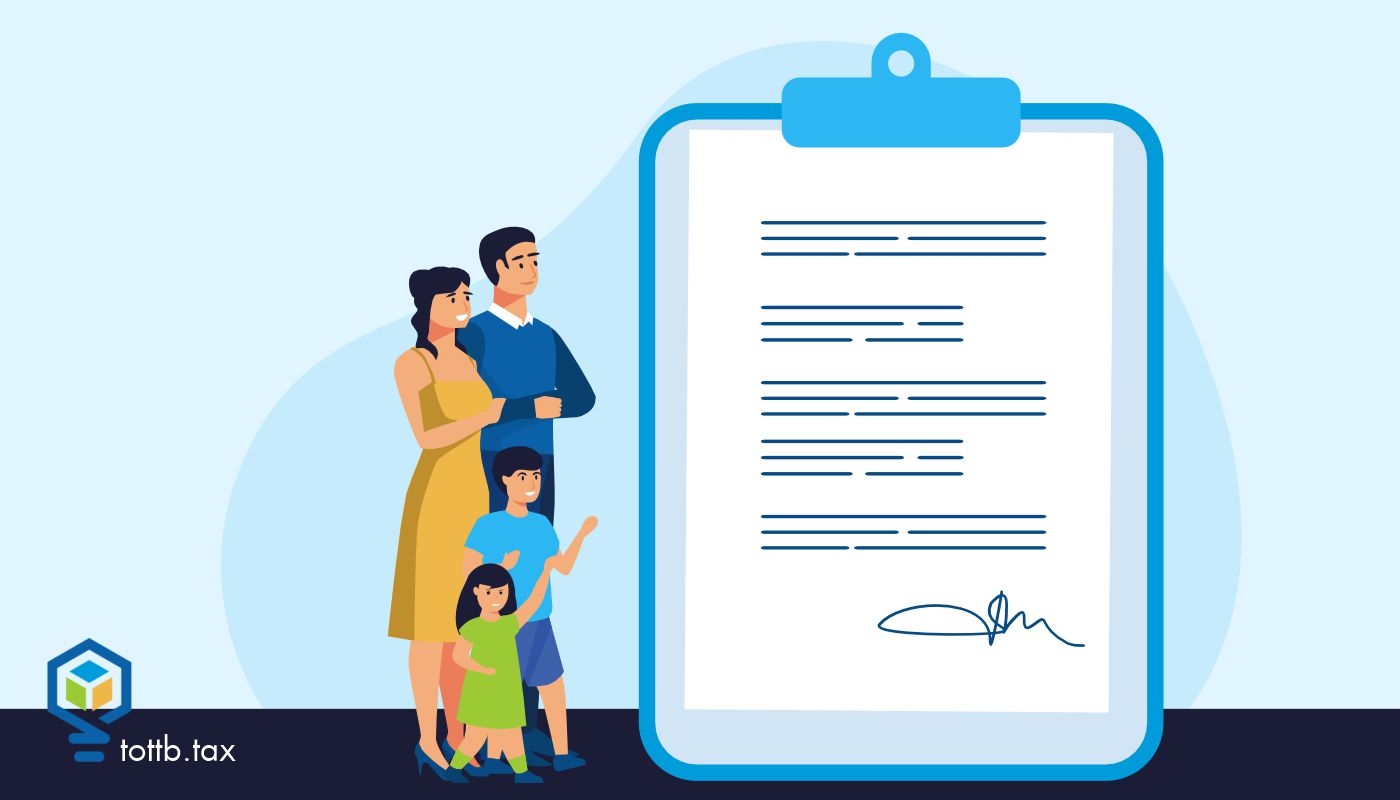CURRENT EDITION

An Analysis of the OBBBA’s Trump Accounts (Part 2)
In part one of this series, I went over the basics of the new retirement accounts for minors, Trump Accounts, which were created as part of the One Big Beautiful Bill Act (OBBBA). Trump Accounts allow the Government, Charitable Organizations, Parents, and others to contribute to a child’s savings, usually on an after-tax basis. These accounts then transition to a traditional individual retirement account (IRA) when the child turns 18. Although the contribution limits act like non-deductible traditional IRA contributions and have a contribution limit of only $5,000 per year, they do not have the same earned income requirements that traditional IRA contributions have. This means that children are able to accumulate savings even without earned income. This article presents several scenarios to examine how Trump Accounts may play into an overall savings strategy for children.
READ MOREMore Free Money With the American Rescue Plan Act of 2021
On Wednesday, March 11, President Biden signed into law the American Rescue Plan Act (ARPA) of 2021, a $1.9 trillion COVID stimulus package. The ARPA contains a mix of retroactive and prospective tax breaks in the form of credits, exclusions from income, and even new tax-free grant programs. Let’s take a look at the most tax significant items in the bill.
Read MoreDon’t Overpay Tax on Crypto Forks and Airdrops
Practically overnight, cryptocurrency has gone mainstream, with more and more investors funneling money into Bitcoin, Dogecoin, and other cryptocurrencies. The IRS has responded with increased interest and scrutiny, demonstrated by the addition of the cryptocurrency question on the front page of 1040. Whether you have invested in cryptocurrency or not, you are required to answer this tax return question. Many investors choose to take the most conservative position to avoid future correspondence from the IRS but trying to avoid a letter is no reason to pay more tax than necessary! After all, the Supreme Court has long held that a taxpayer has the right to do everything possible under the law to reduce tax.
Read MoreMoving to a Low Tax State
Looking to escape high state taxes? Perhaps the taxpayer wants to leave the gridlock, housing congestion, and cement jungles behind for the likes of slower, less expensive living? COVID-19’s long-term impact on urbanization may be uncertain, but we have already seen people moving to low-tax states because these states offer more land and outdoor space. Along with the people, many businesses are also looking to relocate to low tax jurisdictions. But before packing up that U-haul, consider how to lock in your tax savings; otherwise, there may be a nasty bill waiting for you in that new mailbox.
Read MoreGo the Extra (Tax) Mile
Question: Can my business still take a deduction for my car if the title is in my name? Answer: If you want to get all the business deductions you are entitled to for your car, it’s better to have the vehicle titled in your business’s name. Most taxpayers continue to use their vehicles for both personal use and business purposes, as a result, most car titles show just the individual’s name as the owner. This can present a big problem and potential lost deductions, especially due to the Tax Cuts and Jobs Act (TCJA). It is important to review the rules since they have changed recently. You may have deducted expenses on past tax returns as an unreimbursed employee vehicle expense. But under tax reform, the miscellaneous itemized deductions were repealed until 2026, and this is an important rule change. Read on to learn how to still benefit after tax reform and why it can help you go the extra tax mile to title the car in your business’s name.
Read MoreIs Your Spouse Innocent or Injured? Part One: The Injured Spouse
Jack and Jill went up the hill to have a lovely wedding Jack fell down and broke his crown When Jill learned all his tax debts That pretty much describes the origin of the taxes faced by an injured spouse: The taxpayer was not married to that spouse at the time he or she incurred the tax obligation or it was assessed or did not sign the tax return where the balance due originated. In other words, it was never the injured spouse’s debt or obligation in the first place. What kinds of debts or taxes might the IRS collect (or “offset”) that would affect the injured spouse’s refund?
Read MoreAvoiding the Repayment Cliff: Mitigating the Effects of Miscalculating the Advance Premium Tax Credit
The premium tax credit (PTC) is a refundable credit that is available to certain individuals “whose household income for the taxable year equals or exceeds 100%, but does not exceed 400% of an amount equal to the poverty line for a family of the size involved.” In other words, it’s a refundable tax credit that specifically subsidizes the cost of insurance purchased on a health care marketplace for individuals who are over the federal poverty level (FPL), but not by 400 percent or more. This credit is available as an advance paid directly to the marketplace for qualifying taxpayers who cannot afford (or do not wish) to pay their full monthly premium out of pocket. The amount of the credit is calculated based on estimated annual household income. When taxpayers receive more advance credit than they are entitled to, they must repay the excess. So, the consequences for an intentional or inadvertent underestimation of annual income can be severe. What follows is an overview of how the credit works and describes strategies for reducing the amount of advance premium tax credit (APTC) the taxpayer must repay both immediately and after the fact.
Read MoreCoronavirus Tax Credits – How the Self-Employed Can Benefit
March 18, 2020, was a big day for tax bonuses. Congress passed the Families First Coronavirus Response Act (FFCRA). The bad news is this bill requires certain employers to provide two weeks of paid leave to employees impacted by COVID-19. The good news is that when you provide it to your employees, you get a juicy tax credit to reimburse you for these benefits. If you’re self-employed, you may have noticed you tend to miss out on certain tax benefits designed for companies with employees. But in the case of FFCRA, these credits are also available when you are your own boss. Continue reading to find out how to get this cash as soon as the end of the current quarter.
Read MoreHow Late Is Too Late to Request a Late S Election?
Question: How Late Is Too Late to Request a Late S Election? Answer: Late in 2020, the IRS issued a Private Letter Ruling related to a late S election request for relief. Generally, you must file a request to become an S corporation no later than the 15th day of the third month of the taxable year for which the election is to take effect. If you miss this deadline, or don’t file an election at all, the business is generally considered a C corporation or LLC. If you’re like most business owners, however, you may not have known at the time you formed your business all the tax benefits available to you by holding your business as an S corporation. Whether you were unaware, or for some other reason, it may be well past the official IRS deadline to make this request for the current or recently ended tax year. If you haven’t yet filed your tax returns at all, you may be qualified to use the relief available by following the proper procedures. You may also wonder, “How far back can I go in changing the way my business income is taxed?” To learn more about how far back and how long you can be “fashionably late,” continue reading.
Read MoreNOT A MEMBER YET?

SUBSCRIBE TO GET ALL OF OUR
GREAT ARTICLES AND RESOURCES!
CURRENT EDITION

An Analysis of the OBBBA’s Trump Accounts (Part 2)
In part one of this series, I went over the basics of the new retirement accounts for minors, Trump Accounts, which were created as part of the One Big Beautiful Bill Act (OBBBA). Trump Accounts allow the Government, Charitable Organizations, Parents, and others to contribute to a child’s savings, usually on an after-tax basis. These accounts then transition to a traditional individual retirement account (IRA) when the child turns 18. Although the contribution limits act like non-deductible traditional IRA contributions and have a contribution limit of only $5,000 per year, they do not have the same earned income requirements that traditional IRA contributions have. This means that children are able to accumulate savings even without earned income. This article presents several scenarios to examine how Trump Accounts may play into an overall savings strategy for children.

Another Tax-Smart Way to Save for Retirement
Most clients are familiar with the well-known accounts to save for retirement, such as the 401(k) and IRA. Some clients might be able to supplement those with a lesser-known vehicle as well. A life insurance retirement plan (LIRP) is a type of permanent life policy with a cash value basically funded by overpaying premiums. The money can eventually be taken as a tax-free loan against the policy for anything from medical expenses and long-term care to supplemental retirement income to, for the wealthy, the payment of taxes on large estates.

Taxes & Taxidermy: Rampaging Through The Tax Code On The Back Of A Stuffed Rhinoceros
Is the taxidermy fee for a stuffed bear deductible? If so, should I depreciate it? What would the basis and class life be for depreciation? Those are real questions asked in a group chat with some colleagues. Of course my answer was “It depends.” And, like all good tax professionals, I proceeded to ask a series of follow-up questions. And, like a good writer, that got me to thinking about all of the tax-related case law surrounding taxidermy and what it can teach us—it’s more than one might think.









